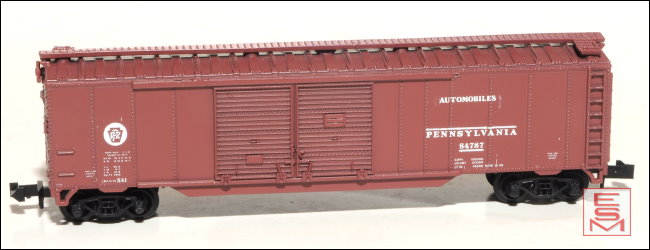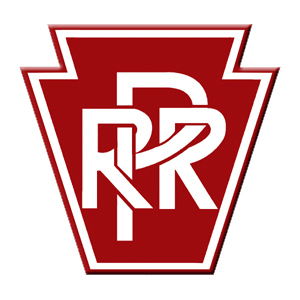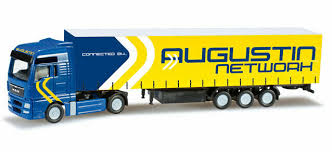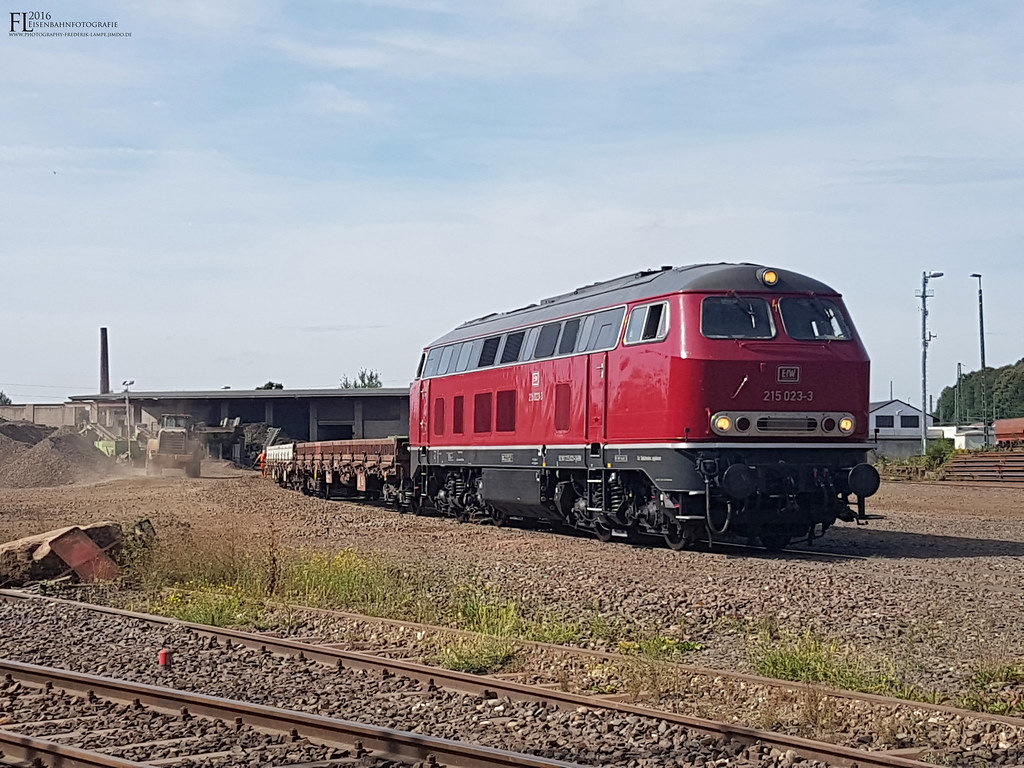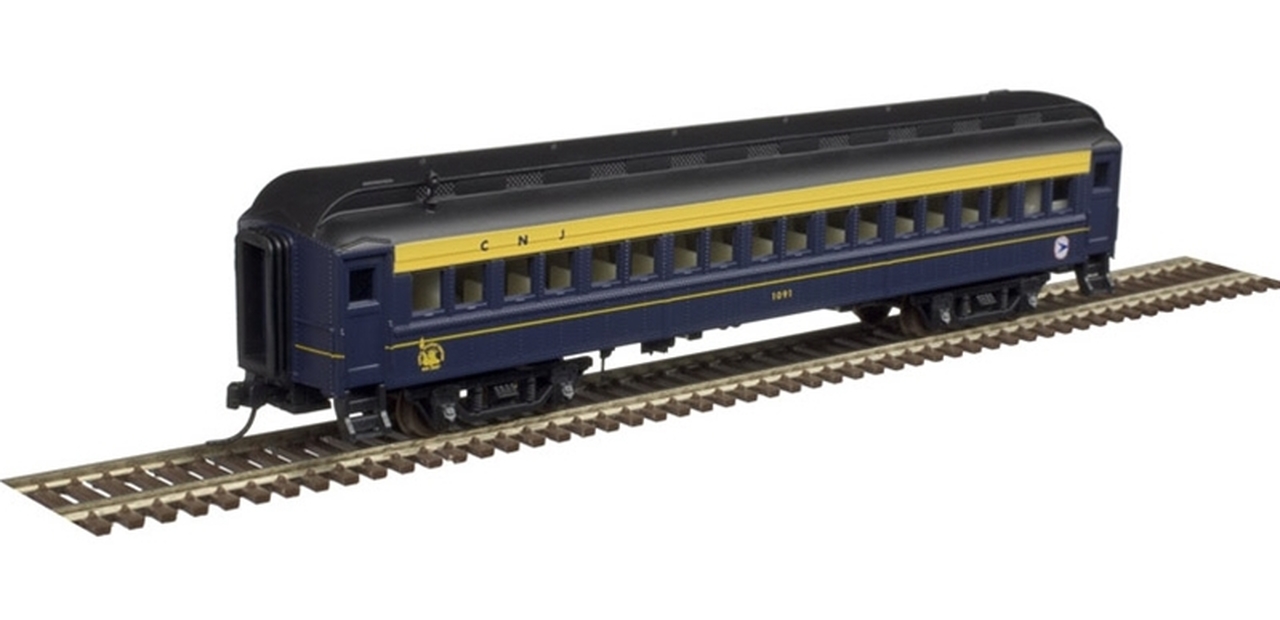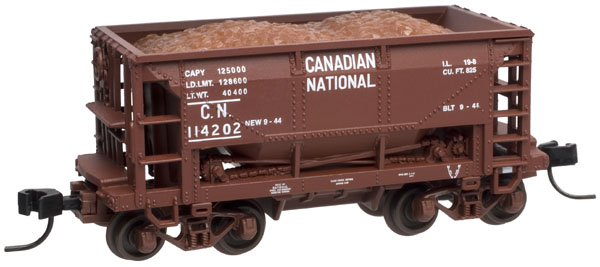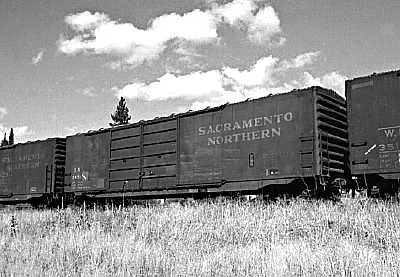Specific Item Information: This model is based on the 1930 as-built prototype. Painted light boxcar red with white printing on the sides. Black friction bearing trucks. Rapido-type couplers. Never sold separately. Made in United States.
Model Information: The first release of this body style was made by Roco in Austria for Atlas in 1967. Later, in 1971, Atlas moved the tooling from Austria to New Jersey and produced their own second release out of their own factory. I presume that Atlas owned the tooling because unlike other Roco models, this one did not later appear as an import by other brands such as Aurora, Minitrix or Model Power. Sometime in the 1990s Atlas again moved the production to China. As of the 2006 run, this model moved to the Atlas Trainman lower-grade range, reflecting its age.
Prototype History: The 50-foot boxcar made its first appearance in the 1930s and steadily grew in popularity over the years, which further improved redundancies by allowing for even more space within a given car. Today, the 50-footer remains the common boxcar size. After the second world war ended, and steel became once again readily available, steel became the go-to choice for construction of boxcars. Pullman Standard and ACF were some of the most prolific builders of these cars.
Double Doors were frequently an option for most of the major North American railcar manufacturers in the 1950s, 1960s and 1970s. These cars were slightly more expensive to produce and maintain, but for many applications allowed faster loading and unloading times.
Double Doors were frequently an option for most of the major North American railcar manufacturers in the 1950s, 1960s and 1970s. These cars were slightly more expensive to produce and maintain, but for many applications allowed faster loading and unloading times.
Road Name History: The Pennsylvania Railroad (reporting mark PRR) was an American Class I railroad, founded in 1846. Commonly referred to as the "Pennsy," the PRR was headquartered in Philadelphia, Pennsylvania.
The PRR was the largest railroad by traffic and revenue in the U.S. for the first half of the twentieth century. Over the years, it acquired, merged with or owned part of at least 800 other rail lines and companies. At the end of 1925, it operated 10,515 miles of rail line; in the 1920s, it carried nearly three times the traffic as other railroads of comparable length, such as the Union Pacific or Atchison, Topeka & Santa Fe railroads. Its only formidable rival was the New York Central (NYC), which carried around three-quarters of PRR's ton-miles.
At one time, the PRR was the largest publicly traded corporation in the world, with a budget larger than that of the U.S. government and a workforce of about 250,000 people. The corporation still holds the record for the longest continuous dividend history: it paid out annual dividends to shareholders for more than 100 years in a row.
In 1968, PRR merged with rival NYC to form the Penn Central Transportation Company, which filed for bankruptcy within two years. The viable parts were transferred in 1976 to Conrail, which was itself broken up in 1999, with 58 percent of the system going to the Norfolk Southern Railway (NS), including nearly all of the former PRR. Amtrak received the electrified segment east of Harrisburg.
The PRR was the largest railroad by traffic and revenue in the U.S. for the first half of the twentieth century. Over the years, it acquired, merged with or owned part of at least 800 other rail lines and companies. At the end of 1925, it operated 10,515 miles of rail line; in the 1920s, it carried nearly three times the traffic as other railroads of comparable length, such as the Union Pacific or Atchison, Topeka & Santa Fe railroads. Its only formidable rival was the New York Central (NYC), which carried around three-quarters of PRR's ton-miles.
At one time, the PRR was the largest publicly traded corporation in the world, with a budget larger than that of the U.S. government and a workforce of about 250,000 people. The corporation still holds the record for the longest continuous dividend history: it paid out annual dividends to shareholders for more than 100 years in a row.
In 1968, PRR merged with rival NYC to form the Penn Central Transportation Company, which filed for bankruptcy within two years. The viable parts were transferred in 1976 to Conrail, which was itself broken up in 1999, with 58 percent of the system going to the Norfolk Southern Railway (NS), including nearly all of the former PRR. Amtrak received the electrified segment east of Harrisburg.
Brand/Importer Information: Eastern Seaboard Models was founded in 1987. They are a manufacturer of N scale reproductions of North American eastern railroad prototypes. The have both decorated other manufacturers' models as well as designed body styles of their own. They are located at PO Box 301, Waldwick, New Jersey 07463-0301 U.S.A.
Their 2016 lineup includes ready-to-run gondolas, well cars, hoppers, tank cars and boxcars. They also produce craftsman quality kits in their "Made in America" series. ESM products may be purchased directly from their website.
Their 2016 lineup includes ready-to-run gondolas, well cars, hoppers, tank cars and boxcars. They also produce craftsman quality kits in their "Made in America" series. ESM products may be purchased directly from their website.
Item created by: gdm on 2017-10-20 09:08:00
If you see errors or missing data in this entry, please feel free to log in and edit it. Anyone with a Gmail account can log in instantly.
If you see errors or missing data in this entry, please feel free to log in and edit it. Anyone with a Gmail account can log in instantly.


